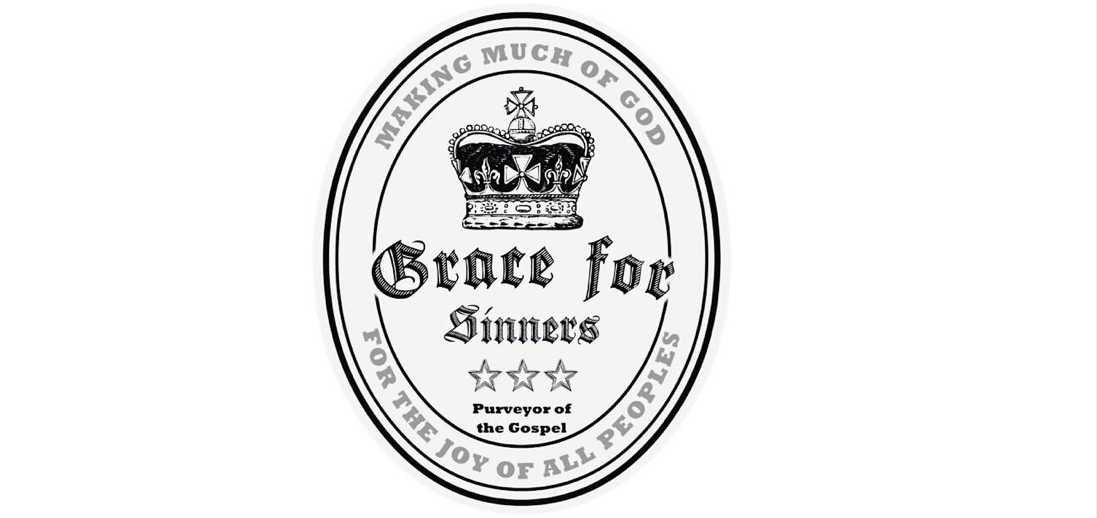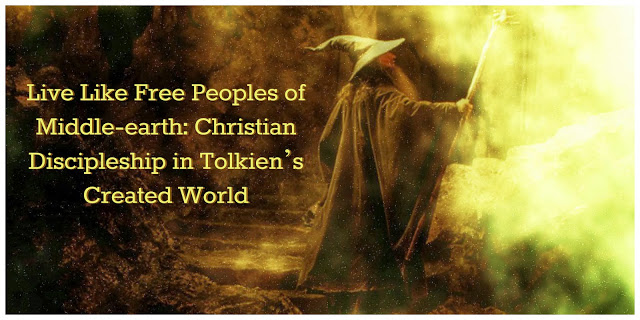With my original post in this series I introduced my objective which is trying to grasp a Christian vision for living from Tolkien’s Middle-earth. My first point examined the doctrine of sovereignty in Tolkien’s writings. That theme is overarching across all of Middle-earth and required a discussion a bit longer than these next few points. After writing out each point, I’ve decided to serialize them over the next three Wednesdays. Our final two points will touch on the importance of weakness and sacrifice. Today we will look at the value of friendship, fellowship, and food.
Second, to live like free peoples of Middle-earth, you must value friendship, fellowship, and food.
This point may be the most self-evident. The Hobbit starts with the unlikely friendship of Biblo and Gandalf. This friendship binds this story together. Without it, you do not have Gandalf’s counsel of Frodo and the ring may have fallen into the hands of Sauron. It’s also interesting that to the wise the friendship of the hobbits and Gandalf seemed foolish. Saruman didn’t understand the value of hobbits and involving himself with those he considered of lesser value (more on this next week).
After that friendship, the dwarves “befriend” Bilbo. They are unwelcomed friends at first soon enjoy table fellowship. The party is feasting, eating, and singing. They are rehearsing their history and the shared history of Middle-earth during these times of table fellowship. You see this same routine as they sit around the table of Beorn the shape-shifter after they are saved by the eagles from the frying pan.
From there, the party enters Mirkwood and the hand of fellowship is not extended by the wood elves. They capture and imprison the dwarves and later siege the Lonely Mountain asking for a split of the treasure. I want to end with this passage
This same theme is carried over to The Lord of the Rings (I’ll be briefer here). The book starts with a farewell party for Biblo. He disappears leaving Frodo everything and lives with Elrond at the last homely house. From the start, Frodo’s journey is uncertain, but is unexpectedly bolstered by the friendship of Sam, Merry, Pippin, and Fatty. They have been spying on him and plan to accompany him from Hobbiton to Rivendell. In another twist, they are adamant about joining the fellowship of the ring. As the name of first book in The Lord of the Rings suggests fellowship is central to the ring-bearer’s quest. That quest is almost destroyed by the lust of Boromir, but is saved by his final act of friendship and sacrifice.
In the second book The Two Towers, friendship is again central. The friendship of Glóin the dwarf and Legolas the elf and also the deep bond between Glóin and the lady of Galadriel (although in book one). Also, the friendship of Aragorn (and the kingdoms of men, in general) and the men of Rohan is established. The unlikely friendship of Merry and Pippin and the ents. And most importantly the friendship of Frodo and Sam which is contrasted with the weird relationship of Frodo and Gollom. It’s the relationship of Sam and Frodo which really carries the theme of friendship through out the entire trilogy. It’s also the reunited friendship of the free peoples of Middle-earth which makes the defeat of Sauron possible.
This truth that friendship is absolutely necessary is one that is also through out Scripture. Not only that, the importance of fellowship around the table and the rehearsal of our common story of the gospel is central to Christian discipleship. That kind of rehearsal of common history is paramount in Tolkien’s Middle-earth. It’s the suspicion of friends which causes damage in Middle-earth and it’s friendship’s restored and a remembering of friendship’s pasts which saves the day. We must value friendship, fellowship, and food as Christian. It has been and always will be central to the handing down of the gospel from generation to generation.
Second, to live like free peoples of Middle-earth, you must value friendship, fellowship, and food.
This point may be the most self-evident. The Hobbit starts with the unlikely friendship of Biblo and Gandalf. This friendship binds this story together. Without it, you do not have Gandalf’s counsel of Frodo and the ring may have fallen into the hands of Sauron. It’s also interesting that to the wise the friendship of the hobbits and Gandalf seemed foolish. Saruman didn’t understand the value of hobbits and involving himself with those he considered of lesser value (more on this next week).
After that friendship, the dwarves “befriend” Bilbo. They are unwelcomed friends at first soon enjoy table fellowship. The party is feasting, eating, and singing. They are rehearsing their history and the shared history of Middle-earth during these times of table fellowship. You see this same routine as they sit around the table of Beorn the shape-shifter after they are saved by the eagles from the frying pan.
From there, the party enters Mirkwood and the hand of fellowship is not extended by the wood elves. They capture and imprison the dwarves and later siege the Lonely Mountain asking for a split of the treasure. I want to end with this passage
“Bilbo knelt on one knee filled with sorrow. “Farewell, King under the Mountain!” he said. “This is a bitter adventure, if it must end so; and not a mountain of gold can amend it. Yet I am glad that I have shared in your perils—that has been more than any Baggins deserves.”The elves of Mirkwood and the men of Dale camp outside of the lonely mountain asking for part of the treasure recovered. Biblo betrays the dwarves from Thorin’s perspective by providing the elves and men leverage. He gives them the Arkenstone the treasure that Thorin longed for most. Thorin sends messengers for his family, Dain from the Iron Hills, to come to his aid. It’s lack of friendship and fellowship (among other things) that almost cost these free peoples of Middle-earth their lives. News comes that orcs riding wargs are coming and Gandalf finally brings the free peoples together. However, although the alliance defeats the orc army with the help of the eagles, Thorin is slain and repeats the words above to Biblo on his death bed. The important part is, “If more of us valued food and cheer and song above hoarded gold, it would be a merrier world.”
“No!” said Thorin. “There is more in you of good than you know, child of the kindly West. Some courage and some wisdom, blended in measure. If more of us valued food and cheer and song above hoarded gold, it would be a merrier world. But sad or merry, I must leave it now. Farewell!” The Hobbit, “The Return Journey”
This same theme is carried over to The Lord of the Rings (I’ll be briefer here). The book starts with a farewell party for Biblo. He disappears leaving Frodo everything and lives with Elrond at the last homely house. From the start, Frodo’s journey is uncertain, but is unexpectedly bolstered by the friendship of Sam, Merry, Pippin, and Fatty. They have been spying on him and plan to accompany him from Hobbiton to Rivendell. In another twist, they are adamant about joining the fellowship of the ring. As the name of first book in The Lord of the Rings suggests fellowship is central to the ring-bearer’s quest. That quest is almost destroyed by the lust of Boromir, but is saved by his final act of friendship and sacrifice.
In the second book The Two Towers, friendship is again central. The friendship of Glóin the dwarf and Legolas the elf and also the deep bond between Glóin and the lady of Galadriel (although in book one). Also, the friendship of Aragorn (and the kingdoms of men, in general) and the men of Rohan is established. The unlikely friendship of Merry and Pippin and the ents. And most importantly the friendship of Frodo and Sam which is contrasted with the weird relationship of Frodo and Gollom. It’s the relationship of Sam and Frodo which really carries the theme of friendship through out the entire trilogy. It’s also the reunited friendship of the free peoples of Middle-earth which makes the defeat of Sauron possible.
This truth that friendship is absolutely necessary is one that is also through out Scripture. Not only that, the importance of fellowship around the table and the rehearsal of our common story of the gospel is central to Christian discipleship. That kind of rehearsal of common history is paramount in Tolkien’s Middle-earth. It’s the suspicion of friends which causes damage in Middle-earth and it’s friendship’s restored and a remembering of friendship’s pasts which saves the day. We must value friendship, fellowship, and food as Christian. It has been and always will be central to the handing down of the gospel from generation to generation.



No comments:
Post a Comment